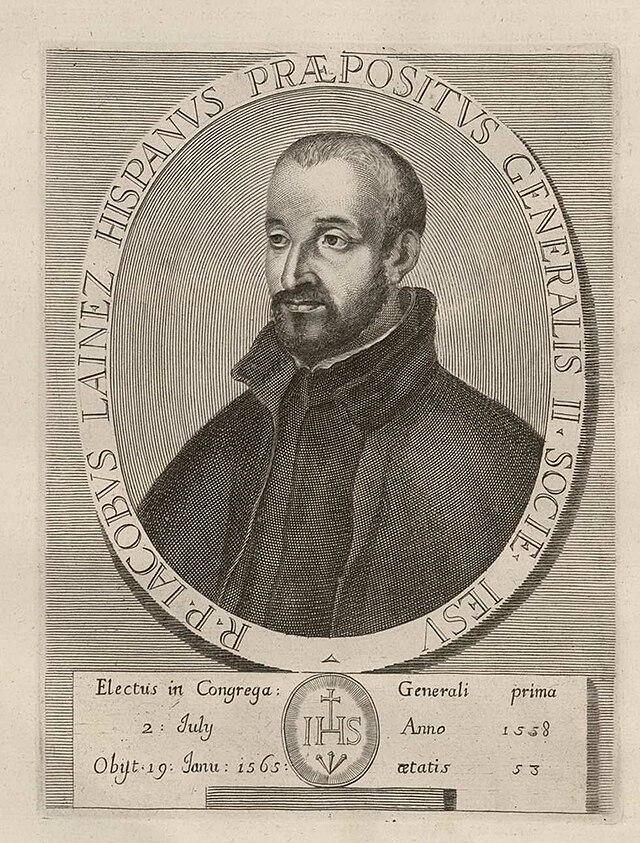Judaizing Jesuits
The Unusual pro-Jewish attitude of the first society of Jesus

Official portrait of Diego Lainez, the first general of the Society after Ignatius of Loyola. Descendant of a family of converted Sephardic Jews, his election as general in 1558 aroused criticism from Church circles most hostile to the "new Christians". Image from commons.wikimedia.org
The Jesuit Order of the 16th century was characterized by a particularly conciliatory and welcoming attitude towards Jews: its founder, Ignatius of Loyola, refused to apply the statutes of limpieza de sangre, which were widespread in Spain at the time, admitting "marranos" into his order. Not only that, he opened a college in Rome to prepare non-Christians, particularly Jews, for baptism, even declaring that if he had Jewish origins, he would be closer to Jesus and Mary. This openness towards Jews attracted many "new Christians" to the Society, such as Diego Lainez, a friend and successor of Ignatius, who wrote that infidels and Jews, if converted, would become better believers than "old Christians." A similar observation was made by the rector of the Jesuit college in Alcalá, who praised the virtue of the converted students compared to others. Lainez's successor, Francisco de Borja, also expressed himself against limpieza de sangre, echoing St. Paul's phrase that "there is neither Jew nor Greek, neither slave nor free." According to the Jesuit theologian Juan de Mariana, it was not possible for a disgrace (such as being Jewish) to be passed down through generations. There were also Italian Jewish Jesuits, such as Gian Battista Eliano, an Egyptian convert, and Antonio Possevino, who provocatively reminded others that Jesus was Jewish. It is possible that the Jewish origins of many Jesuits fostered their studious attitude towards other cultures, as they themselves were immersed in a culture of diversity. In fact, in Jesuit missionary work, new Christians like secretary Juan de Polanco and Jose de Anchieta, the "apostle of Brazil," played important roles. This pro-Jewish attitude sometimes caused problems and embarrassment for the Society and its members: Lainez's origins were later concealed by Jesuit historian Francesco Sacchini, and it is likely that Polanco's Jewish ancestry contributed to preventing his election as general. Furthermore, in 1593, under external pressure, the Society temporarily closed its doors to new Christians, only to reopen them shortly after.
Book: Claudio Ferlan, i Gesuiti, Il Mulino, 2015
Book: Adriano Prospei, Tribunali della coscienza: Inquisitori, confessori, missionari, , Piccola Bibblioteca Einaudi, 2009
2025-10-11
Salvatore Ciccarello
